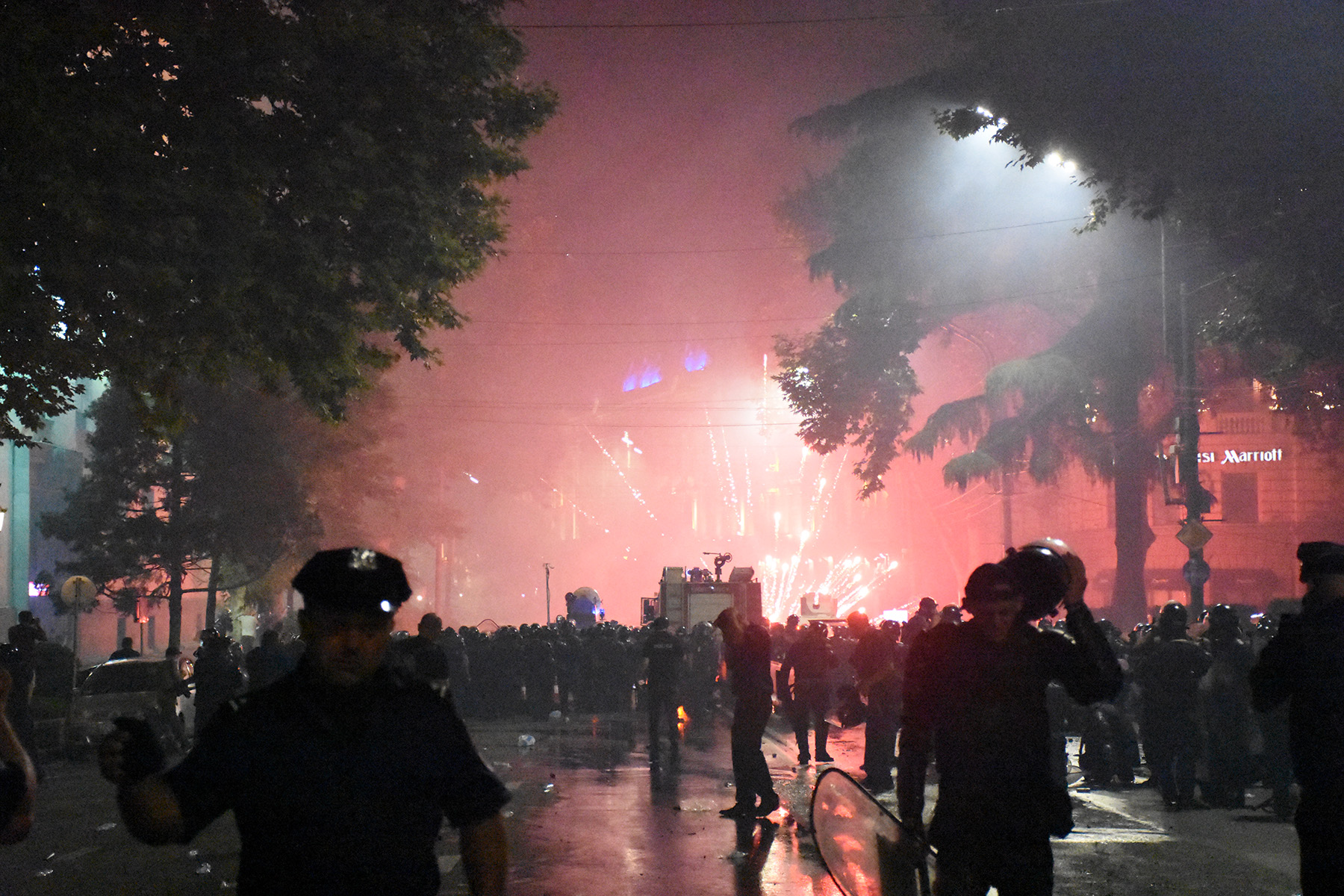
The Georgian Prosecutor’s Office has announced they are investigating senior opposition figures for attempting to overthrow the government through violence.
The announcement came several days after they opened a probe into Nika Melia, a prominent MP from the United National Movement Party (UNM), for ‘organising and leading group violence’ during a protest that turned violent on 20–21 June in Tbilisi.
[Read more on OC Media: Thousands clash with police as protesters try to storm Georgian Parliament]
The Prosecutor’s Office announced on 4 July that they and the Interior Ministry were also probing Melia and other unnamed individuals over an alleged conspiracy to violently overthrow and seize the state power, resulting in ‘grave consequences’.
The crime of rebellion, when leading to ‘death or other grave consequences’, is punishable by 15–20 years in prison.
Parliament stripped Melia of his parliamentary immunity on 26 June, several days after his involvement in anti-government protests in front of Parliament.
The dispersal of the crowd by riot police in the early hours of 21 June resulted in hundreds of injuries, including loss of eyesight, sparking daily street protests demanding the resignation of Interior Minister Giorgi Gakharia.
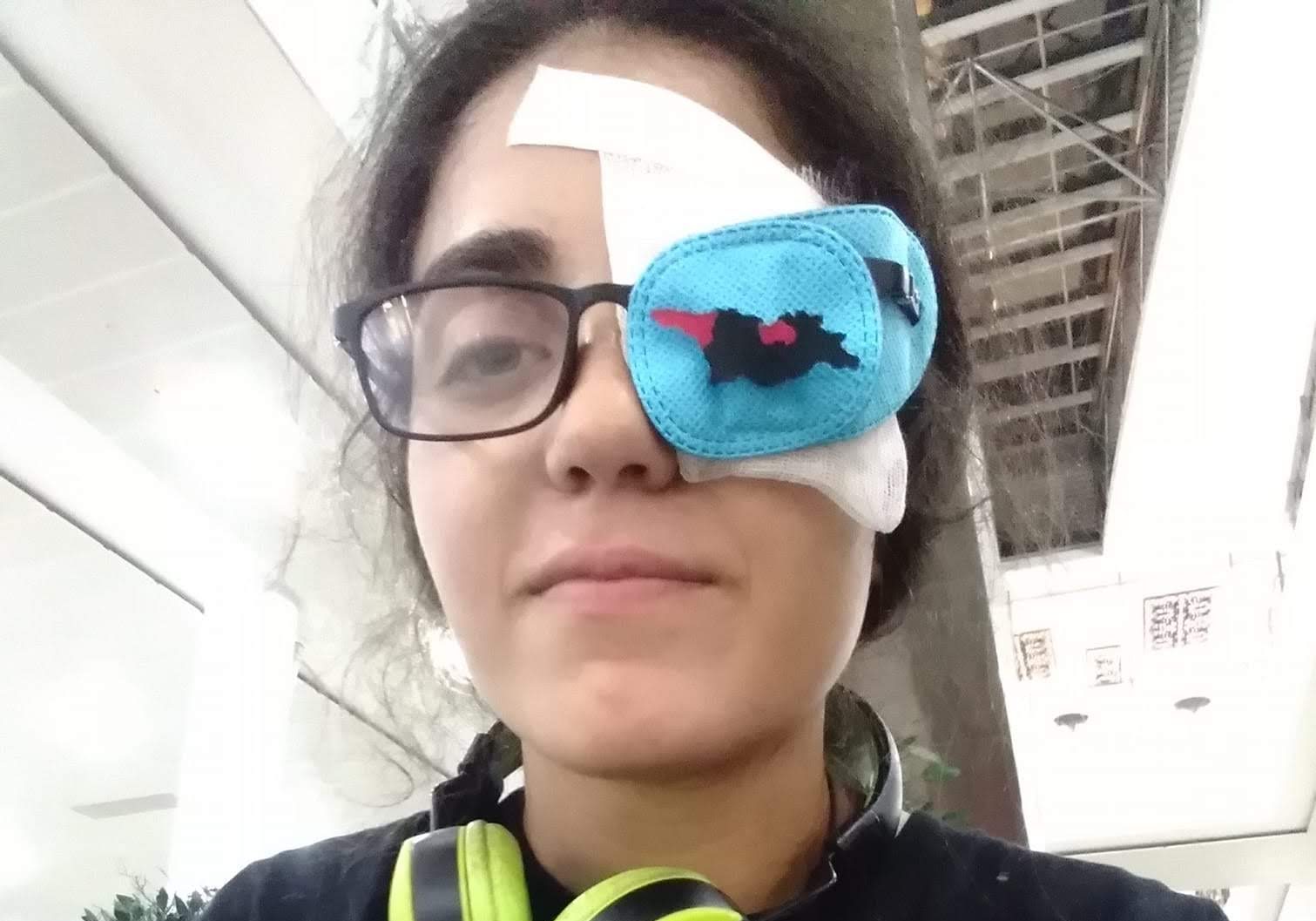
[Read more on OC Media: 5 violations by police during the Tbilisi clash]
According to the Prosecutor’s Office, the decision to open a rebellion investigation was based on evidence including ‘dozens of witness testimonies’.
They said an attempt to ‘storm’ the parliament building on 20 June was planned as the ‘first stage’ that would have been followed by other ‘criminal acts nationwide’, which they said the authorities thwarted.
Opposition leader given a monitoring bracelet
The Georgian probation service installed a tracking bracelet on Melia on 3 July after he was released by the Court of Appeals on ₾30,000 ($11,000) bail. Prosecutor’s had asked the court to remand him in pre-trial detention.
Melia ridiculed the measure, calling the device ‘cheap jewellery from [Bidzina] Ivanishvili’, the Chair of ruling Georgian Dream party and a former Prime Minister.
The UNM and other opposition groups frequently refer to Ivanishvili as the country’s ‘informal ruler’ calling the shots behind the formal state officials who occupy the highest political posts.
Several hours before the latest announcement by the Prosecutor's Office, 16 Georgian political groups joined the UNM in calling the Tbilisi City Court and Court of Appeals rulings the ‘best example of anti-democratic rule’ in Georgia.
European Georgia, a spin-off party of the UNM, as well as non-parliamentary parties including the Republican Party, the Free Democrats, and the Labour Party argued in their joint statement that the measures restricted the political activity of an MP, which they said contradicted the constitution.
Georgian Dream argued otherwise, stating on 26 June that they merely refused to make an MP less accountable before the law than any other ordinary citizen. The party recently hinted they would take disciplinary measures against two MPs who dissented by refusing to greenlight the decision to strip Melia of his immunity.
Melia, along with thousands of protesters, promptly joined members of European Georgia in demonstrating in front of parliament on 20 June after Russian MP Sergey Gavrilov was invited to addresses parliament that morning from the Chairperson’s tribune.
Melia urged those who were angry at Georgian Dream for allowing this to take place to occupy the parliament building. He made a similar call later that day, addressing a large crowd in front of parliament.
About an hour after UNM demanded the resignation of Speaker Irakli Kobakhidze, Interior Minister Giorgi Gakharia, and snap parliamentary elections, Melia urged the crowd to move forward towards the police line that was blocking the entrance to parliament.
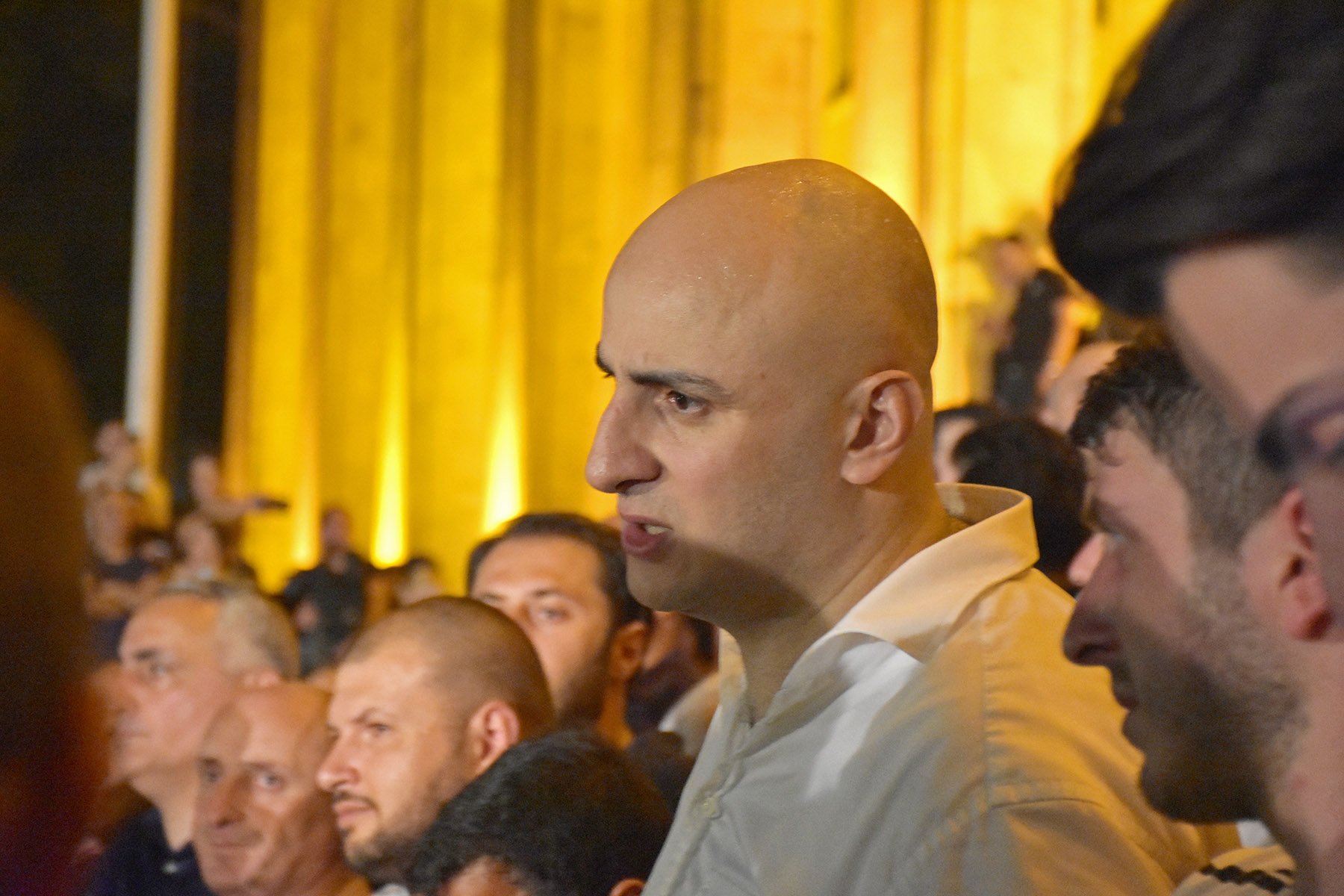
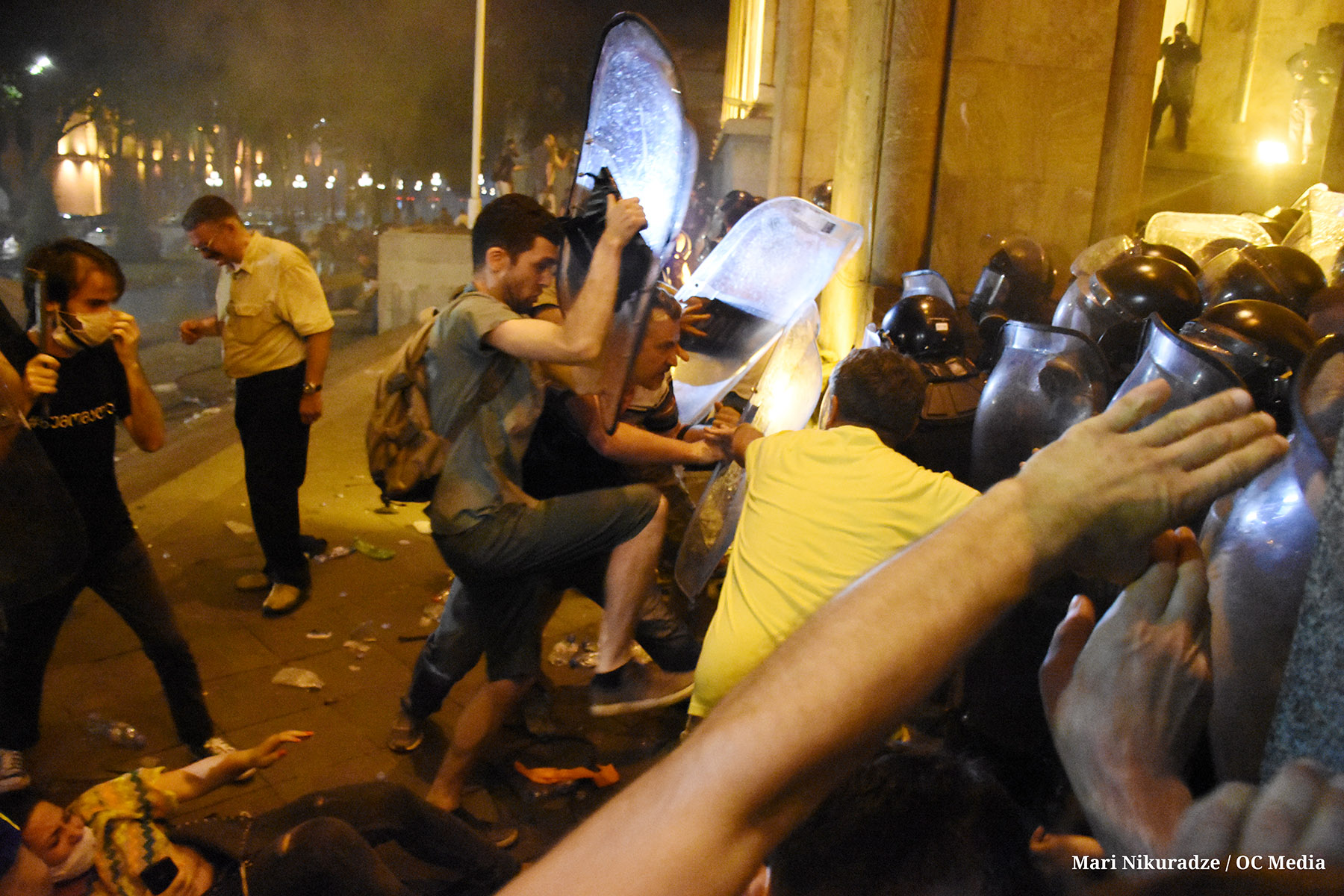
Following this, violence broke out as protesters attempted to break through the police lines and were met with teargas and rubber bullets.
A ‘widening circle’
The Prosecutor’s Office did not specify the names of other individuals facing similar charges, promising only to make the circle of those accused wider ‘in the nearest future’.
Gigi Ugulava, one of the leaders of European Georgia, UNM member Giorgi Baramidze, and former Georgian Defence Minister Irakli Orkuashvili all announced that they were being treated as witnesses within the original probe into group violence.
All three were summoned by the Interior Ministry for questioning.
Ugulava, a former Mayor of Tbilisi (2005–2013) who served 30 months in prison convicted of corruption, refused to visit the Interior Ministry. He requested to testify before a Magistrate’s Court instead — an option allowed by Georgian law where a witness distrusts law enforcement agencies.
Irakli Okruashvili, who last month unveiled a new political party, Victorious Georgia, said he was currently abroad and would also testify in front of a court, via a distance if needed, before his return to Georgia.
Natia Beridze, a journalist from news site Es Persona, claimed she witnessed and filmed on her mobile phone members of the opposition discussing their plans in front of parliament on 20 June evening.
Beridze claimed Melia, Ugulava, UNM Chair Grigol Vashadze, and others including Rustavi 2 Director and the former Prosecutor Nika Gvaramia, discussed their ‘violent’ plans for ‘another rose revolution’.
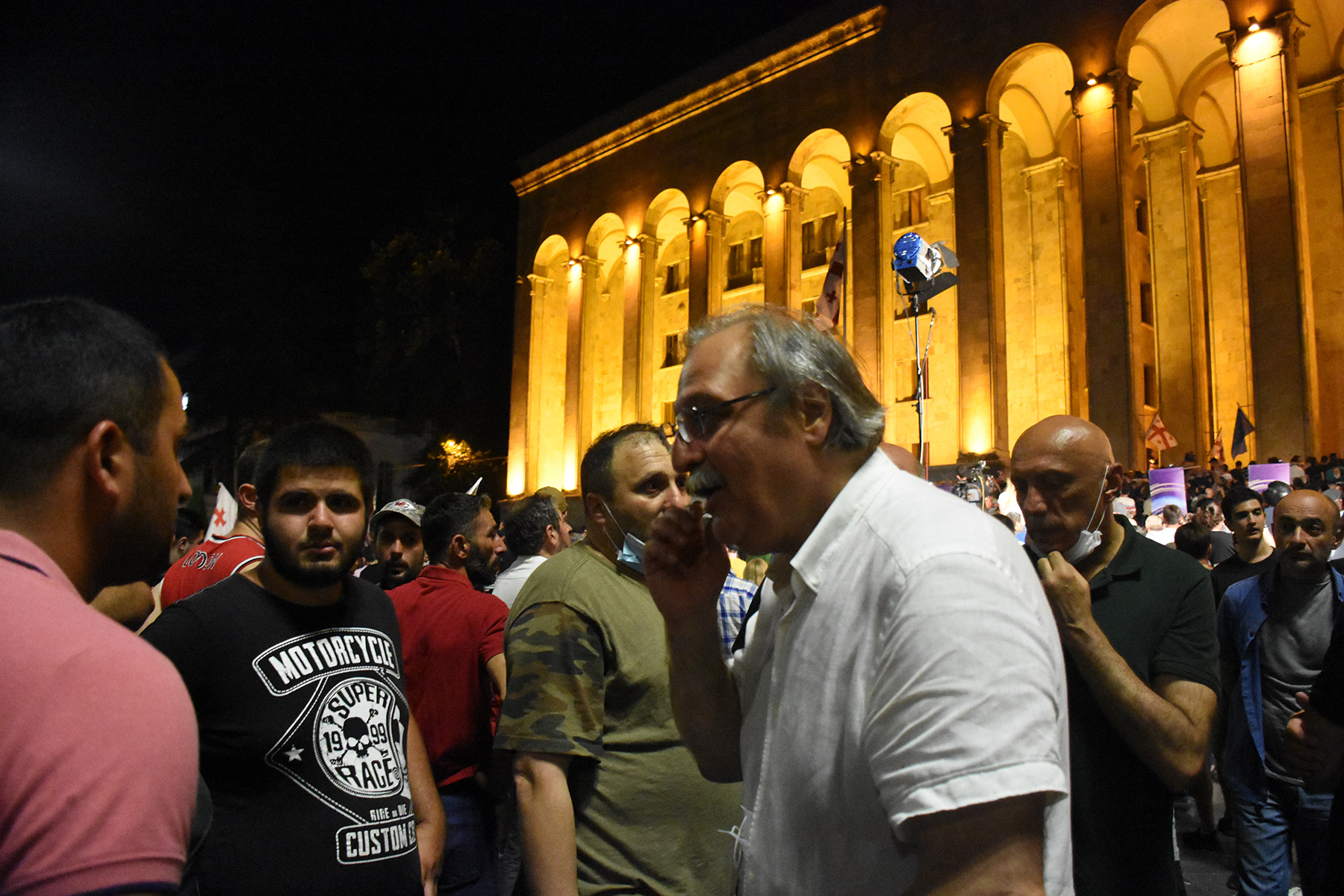
Law enforcement agencies have not yet specified if they are using the footage as evidence.
Still no police charged for excessive force
During the same press briefing, the Prosecutor’s Office spokesperson said that a separate investigation into abuse of power by police officers on 20–21 June was in ‘full swing’.
They said they had requested ‘all the information’ on the police operation from the Interior Ministry, and were closely cooperating with Georgia’s Public Defender, Nino Lomjaria, and non-governmental organisations, whom they had also asked to share all the relevant information on possible police violations.
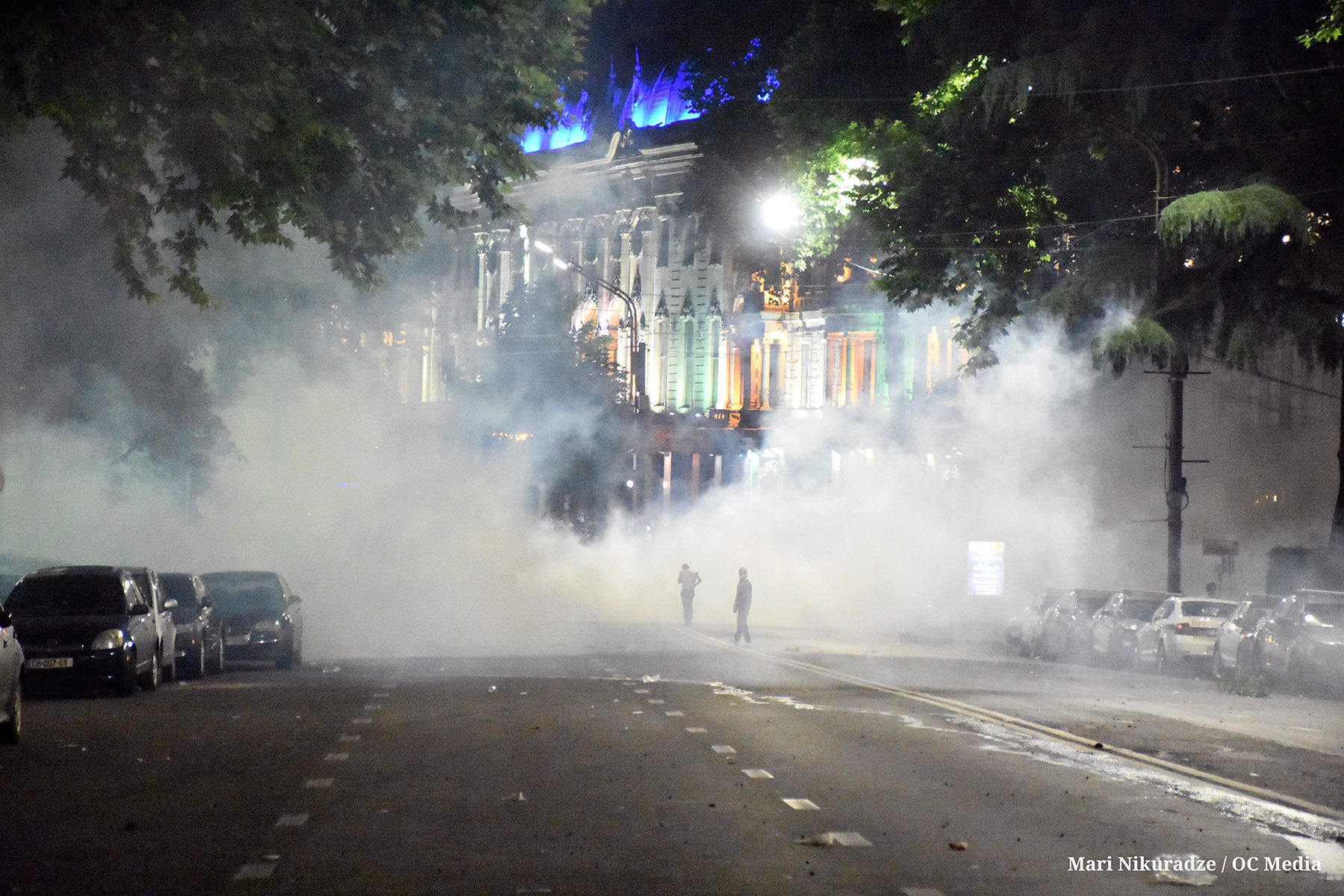
On 24 June, the Interior Ministry said they had suspended 10 police officers and found elements of criminality in the conduct of two of those officers. Nine days later, they also said they had ‘temporaryily suspended’ the director of the Special Tasks Department, Giorgi Kakichashvili.
However, despite video footage from the night showing officers beating protesters and one officer appearing to delibrately target a film crew with his weapon, no arrests have yet been made.




 4 July 2019
4 July 2019


